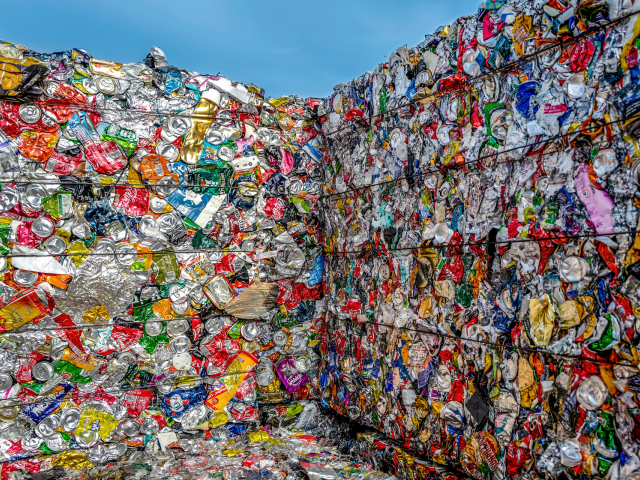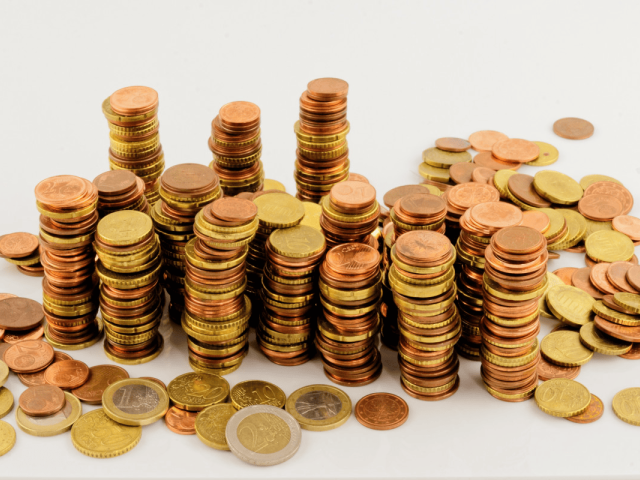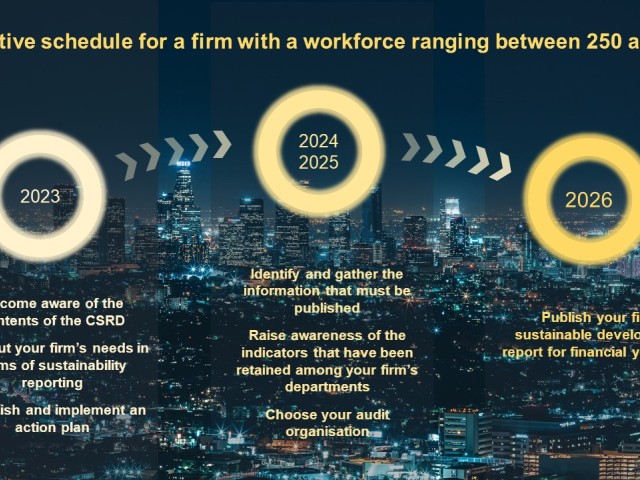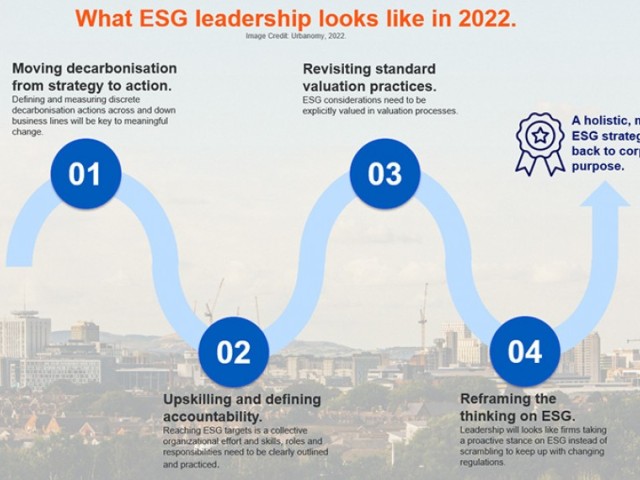By Felix Briaud, Urbanomy
20/07/2023
European institutions are (finally!) tackling greenwashing.
These past months, the Commission and then the Parliament have taken a stand against this practice and against companies that slow down, or even prevent the fight against climate change. Consumers are all too often confused by messages that are at best vague and at worst completely false. As for the labels, they don't fare much better.
Second part of a series of articles by Urbanomy on forthcoming European regulatory developments.
Go ahead. Feel free. You can tell us ANYTHING.
Yes, you too will admit that you've already been fooled by a product labelled "ecological". "Green". "Good for the planet". Or, a subtle and slightly more unusual variation, "carbon neutral".
Rest assured, many of us have fallen for the greenwashing scam and have therefore been fooled by these unscrupulous formulations. That's exactly why the European institutions have taken up the issue. On May 11th, the plenary session of the European Parliament voted in favour of the "proposal for a directive on empowering consumers for the green transition".
To cut a long story short, you can call it the "Green Claims Directive". In common parlance, it is in fact very likely to be called the "anti-greenwashing directive" or "directive against greenwashing".
Having made this choice of terminology, let's not forget the broad consensus that emerged in the European Parliament: 544 MEPs voted in favour of the proposal, 18 voted against and 17 abstained. This represents 97% of votes cast in favour of the text, proof that the consensus on the subject of these "green claims" is virtually unanimous.
Following the vote on the CSRD, the Corporate Sustainability Reporting Directive, this is the second time in just over six months that the European Parliament passes a major piece of legislation on climate issues.
Three of the four main aspects listed below tackle the issue of greenwashing, while the final aspect deals with the issue of premature obsolescence (also known, clumsily as we shall see below, as 'planned obsolescence' or 'built-in obsolescence'):
- generic environmental labels such as "ecological", "natural", "biodegradable" or "environmentally friendly" can no longer be used unless the company can demonstrate that it is legitimate to use them
- these descriptions cannot be applied to the entire product if they relate to only one of the product's characteristics
- "green claims" derived from a carbon offsetting system, such as "carbon neutral" or "CO2 neutral", which are considered to mislead consumers, will no longer be allowed
- manufacturers will be prohibited from designing products with built-in functions that would limit their lifespan. For example, it will be forbidden to market a phone for which the purchase of an unofficial charger would not recharge the battery as well as an official charger or would wear out the battery faster
We're done with fun and games
Stop greenwashing! The EU's aim is to help consumers make informed choices when making purchases but also to reinforce the credibility of robust, scientific methodologies.
A brand or company claims that the product or service it markets is environmentally friendly? Let it prove it! If it can't, it will be caught red-handed in the act of greenwashing and will have to withdraw all references to environmental benefits.
The issue of proof is therefore of paramount importance in this text. Pseudo-ecological claims should no longer be allowed to flourish on packaging, in advertising or in any other type of communication by the companies that market them.
In doing so, the aim is clear: to encourage economic players to go back to the drawing board so as to offer consumers goods or services that are genuinely good for the planet, the climate or biodiversity.

Transcript
Picture of washing capsules containing a green liquid
We've come a long, long way together
It has taken more than three years for this European project, which aims to put an end to greenwashing, to become reality.
David Cormand, MEP for the Greens/EFA group, explained at the end of 2020, when submitting his report "towards a more sustainable single market for business and consumers":
"our consumer society has become a consumerism society, where we waste and destroy resources."
In other words, human consumption patterns are causing the planet to burn up.
And yet, the MEP reminded us, with its contribution to global GDP of around 18%, the 27-member European Union has "the power and the capacity to prescribe a certain number of rules (...) that protect consumers".
Beyond greenwashing, the issue addressed by this MEP's report is that of "premature obsolescence", a term that is certainly more relevant than the widely used "planned" or "built-in obsolescence". The latter two put all the responsibility on manufacturers, even though irrefutable proof of such practices is often lacking. It also fails to take into account the behaviour of consumers in this phenomenon, who are keen to renew their equipment for the sake of fads, for instance.
But let's get back to "green claims". In its study on the potential role of consumers in the ecological transition, drawn up in October 2021, the European Commission's Directorate-General for Justice and Consumers ("DG JUST") identified two problems that it described as "major" and "preventing consumers from adopting a more sustainable consumption behaviour".
The first is that consumers, when making a purchasing decision, lack reliable information on the sustainability characteristics of the manufactured goods or services concerned; the second is that they are faced with sometimes unscrupulous companies which, in their communications, seek to confuse or even mislead consumers about the responsible nature of the products they put on the market and in particular their environmental responsibility - which is known as greenwashing.
In short, consumers either don't have enough information. And when they do, it is often inaccurate, baseless or even dishonest.
That's all very well. But they're only taking action now?!
The history of this directive against greenwashing is in fact closely linked to that of a tiny little virus that was in the news in recent years.
Examination of the subject was postponed several times. In March 2020, the European Commission unveiled its action plan on the circular economy, a few months after the launch, in December 2019, of the European Green Deal.
Unfortunately, this action plan was disclosed on 11 March 2020, at exactly the same time as European countries - with Italy leading the movement - were taking measures to strictly confine their populations. On a scale not seen in a century, the Covid-19 pandemic swept everything in its path, and the draft directive against greenwashing was no exception. Anything other than the health crisis was, as you no doubt recall, relegated to the background.
"Take action for the planet: buy this shirt!"
It was also in 2020 that the European Commission carried out an analysis of 150 green claims: "reduced climate footprint", "zero carbon" or "packaging made from recycled materials". More than half of these green claims contained "vague, misleading or unsubstantiated information". Food, textiles, household appliances... all sectors were affected by this mass greenwashing.
But there weren't only claims. The EU's executive body also examined 232 eco-labels or labels presented as such. In half the cases, the Commission concluded that they were awarded after "weak or non-existent" checks; a subject that journalist Sandrine Rigaud had also looked into six years ago, in an investigation devoted to the cotton market and the use of this material in the ready-to-wear clothing industry.
With this directive against greenwashing and green claims, the conditions for creating labels will be tightened. First of all, new certification initiatives will no longer be allowed to originate from companies or professional associations under private law, unless the considered labels turn out to be more demanding than those that already exist. Environmental benefits will have to be based on an in-depth analysis, certified by independent third parties.
As for the new public certifications, they will have to be drawn up at European level to ensure consistency between member states.
As the European Commissioner for the Environment, Virginijus Sinkevičius, explained, from now on, if a T-shirt is advertised as being made from recycled plastic bottles, it will be necessary to specify, for example, that these much-vaunted bottles "only made it possible to produce 1% of the T-shirt".
If this is not the case, brands will be liable to penalties and compensation, and consumers could sue companies guilty of greenwashing. But the directive still has a long way to go, and not an easy one: firstly, the "trialogue" negotiations between the Parliament, the Council of the European Union and the European Commission, and secondly, its transposition into national legislations.
Sources (non-exhaustive selection):
- Actu.fr : https://actu.fr/planete/solutions/consommation-l-union-europeenne-veut-mettre-fin-au-greenwashing_58312462.html
- Climatoscope : https://climatoscope.ca/article/lobsolescence-prematuree-de-nos-produits-de-consommation-un-debat-a-remodeler/
- Commission Européenne : https://commission.europa.eu/system/files/2022-03/7_1_186792_sum_prep_stu_prop_em_co_fr.pdf
- Ecofi / L'info Durable : https://www.linfodurable.fr/partenaires/ecofi/la-commission-europeenne-avance-pour-limiter-le-greenwashing-38026
- Euractiv : https://www.euractiv.fr/section/climat/news/le-parlement-europeen-vote-linterdiction-du-greenwashing-et-de-lobsolescence-prematuree/
- Euronews : https://fr.euronews.com/my-europe/2023/03/22/lue-sengage-a-sevir-contre-le-greenwashing-en-adoptant-de-nouvelles-regles-detiquetage
- Le Monde : https://www.lemonde.fr/economie/article/2023/03/22/greenwashing-le-plan-de-bruxelles-pour-mettre-de-l-ordre-dans-les-labels-verts_6166526_3234.html
- Novethic : https://www.novethic.fr/actualite/environnement/climat/isr-rse/l-union-europeenne-encadre-l-allegation-de-neutralite-carbone-151525.html
- Youmatter : https://youmatter.world/fr/green-claims-directive-europe-greenwashing/

About the author
Felix Briaud
A journalist for ten years, he drifted towards data applied to digital advertising. Only recently did he convince himself, by joining the practice, to align his professional life with his personal beliefs about the environment.
Aside from that, Felix is mad about music - particularly that from the 1950s to the 1970s. In this area as in others, he is a bottomless source of fun facts and would happily share a couple with you.















